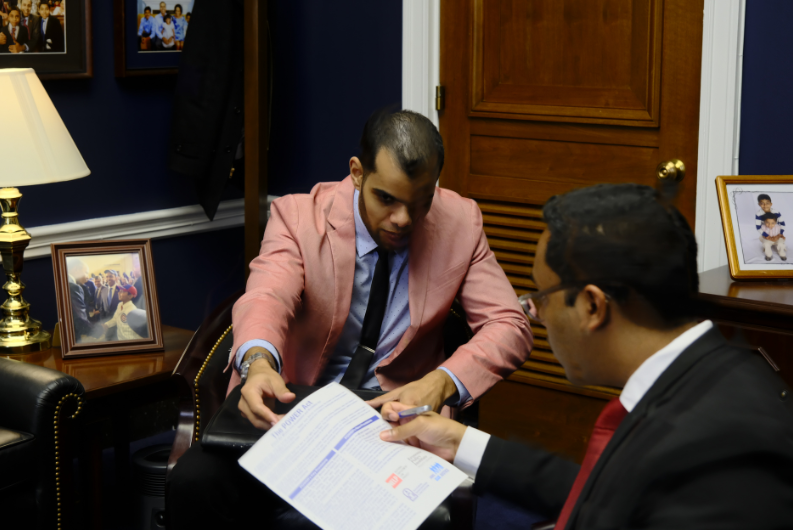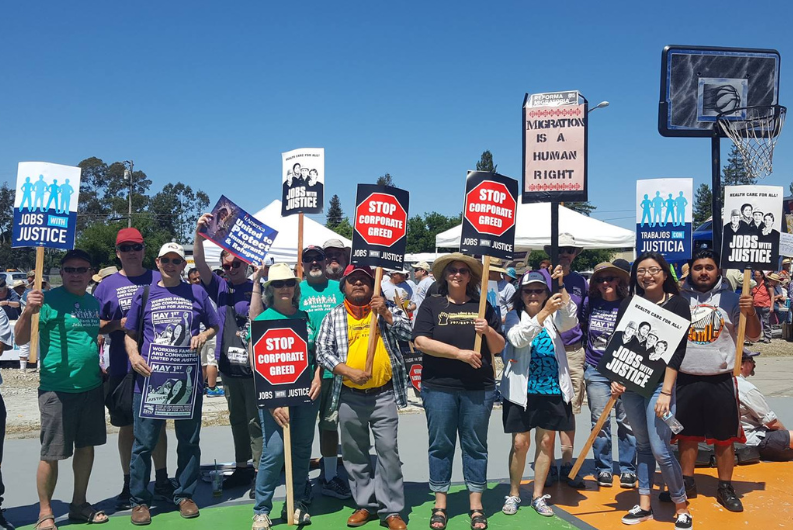As workers and unions attempt to organize in the U.S. economy, we are confronted with a broken immigration system as well as corporate driven U.S. labor laws. When these two systems meet at the worksite, it’s no wonder that it has become extremely difficult for workers to organize for their rights.
Our broken immigration system is exploited by large corporate interests and used to lower labor standards. We have a two-tiered system of rules and standards that denies millions of workers access to basic rights and benefits in the workplace. All workers lose ground in a system that allows unscrupulous employers to suppress basic organizing rights, intimidate and retaliate against employees, and treat workers differently based on immigration status.
We need to make immigration reform work for workers — not just corporations!
Here are three important areas for worker protections for immigration reform:
o The POWER Act: provides immigrant workers exercising labor and civil rights with protections against retaliation and exploitation. We believe the POWER Act is an essential strategy in stopping the exploitation and abuse of immigrant workers by unscrupulous employers who profit from these practices.
o Caring Across Generations: provides an opportunity to address the critical and rapidly growing need for quality home care work as our society ages and to allow undocumented care workers to come out of the shadows. Our vision for immigration reform includes a path to citizenship for all 11 million undocumented immigrants that de-links proof of employment from the process and recognizes the critical role of undocumented care workers already living in the U.S.; and a system for future care workers to enter the country on an expedited pathway to citizenship when shortages in care labor markets exist.
o Future Flow/Guestworker Programs: Future employment-based immigration proposals must guarantee strong labor standards for all workers who arrive to work in the United States. Existing guestworker programs should be improved, not expanded. Immigrant workers who arrive to work on visas for any period of time must have the same labor and employment rights as U.S. workers. This will remove the economic incentive of employers to look to global workforces unless there is a real labor shortage within an industry. Doing so raises standards for all workers and protects against creating a second class of workers.
Immigration reform can raise standards for all workers if policymakers adopt broader, stronger labor protections, along with first-class citizenship.





